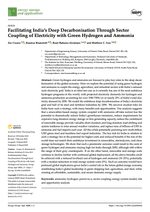Cherie E. Bond, Susan A. Greenfield
Glia 55: 1348–1361 DOI: 10.1002/glia.20547
View Journal Article / Working PaperMany neurodegenerative diseases share common underlying features, most prominent of which are dysregulation of calcium homeostasis and reactive astrogliosis, ultimately triggered by oxidative stress. Interestingly, an additional feature of the early response to stress conditions is the upregulation and release of acetylcholinesterase (AChE). This study therefore investigates the link between oxidative stress, calcium influx, gene expression, protein synthesis, and AChE release. We report that, in astroglia and in an immortalized cell line, GH4-h?7, acute oxidative stress causes influx of extracellular calcium through L-type voltage-gated calcium channels (L-VGCC), followed by increased release of AChE into the extracellular medium. Moreover, rapid and sustained changes in mRNA expression of AChE, L-VGCC, and melastatin-like transient receptor potential 2 (TRPM2) accompany profound suppression of global protein synthesis. Application of L-VGCC blockers selectively reduces stress-induced calcium influx and AChE release, mitigates changes in gene expression, and facilitates recovery from protein synthesis suppression. Although glia exhibit greater sensitivity in their responses, the results are comparable in astroglia and GH4-h?7 cells, and suggest a generalized and integrated cellular response to stress conditions that characterizes changes observed in neurodegeneration.




